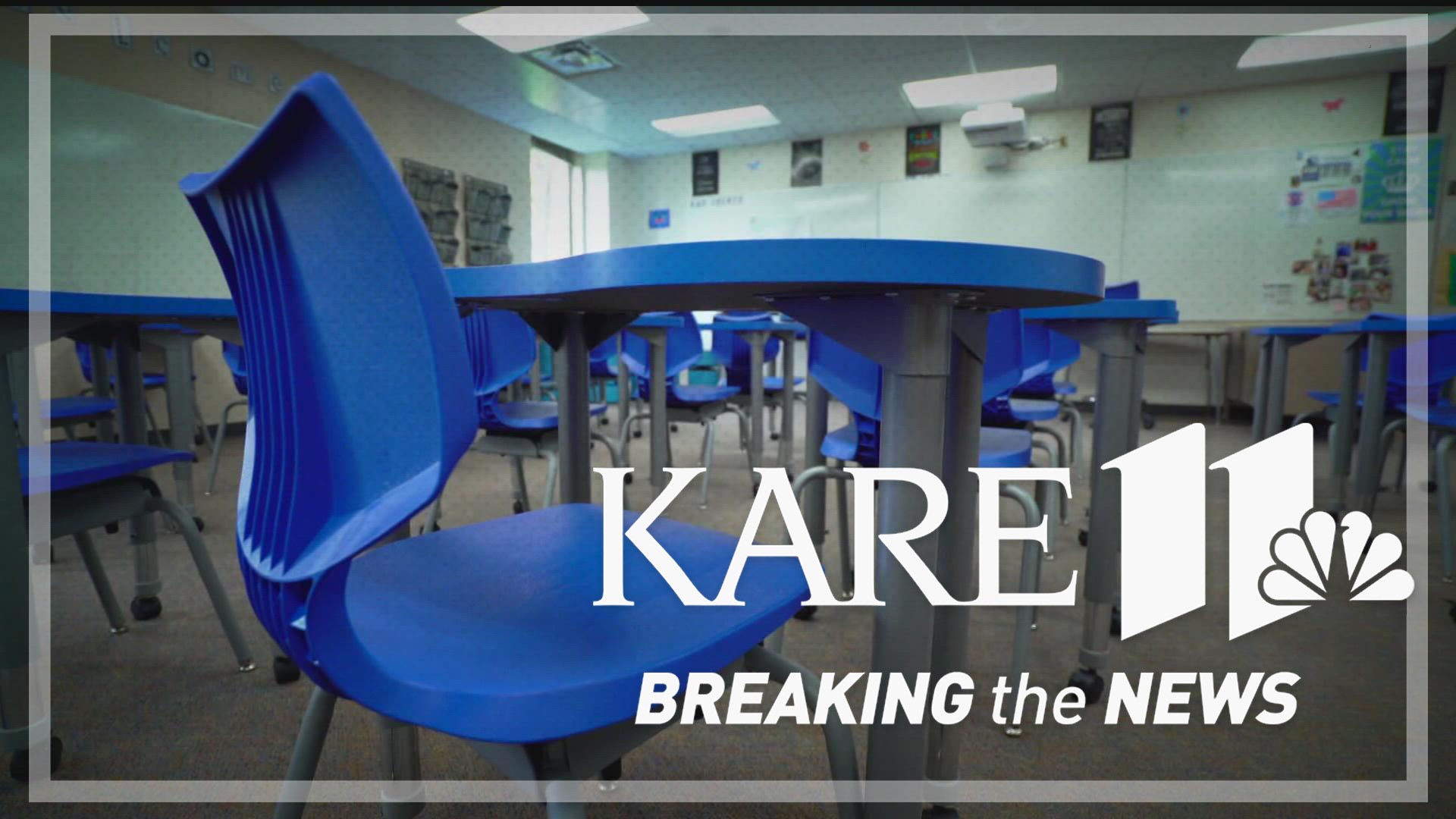MINNEAPOLIS — The Minnesota Department of Education is expanding its Collaborative Minnesota Partnerships to Advance Student Success program, also known as COMPASS, to provide greater support to schools across the state.
According to the MDE, the state's North Star Accountability system, which was launched in 2019, identified 371 public schools and 15 entire school districts that will receive varying levels of support through COMPASS this year.
That support will come from the Department of Education and Regional Centers of Excellence over the next three years, whose staff will provide specialized support in literacy, math and social-emotional learning.
MDE says 46 schools were identified to receive comprehensive support, the highest level, to "improve outcomes across multiple measures." Another 103 high schools with graduation rates below 67% and 48 schools that have one of more student groups below "performance thresholds for multiple measures in both 2018 and 2022" will also receive comprehensive support.
Minneapolis Public Schools has 20 schools earmarked to receive comprehensive support, including 11 elementary schools.
Saint Paul Public School also has 20 schools slated for comprehensive support, while Anoka-Hennepin, one of the largest district in the state, has three schools set to receive the same level of support.
The Department of Education explained that the 2022 North Star Accountability report includes results from 2022 statewide assessments: The Minnesota Comprehensive Assessments (MCAs), Minnesota Test of Academic Skills (MTAS), ACCESS for ELLs (ELL) and Alternate ACCESS for ELLS.
This year's data revealed "slight declines" in the number of students who met or exceeded grade level standards compared to 2021, MDE said.
"These statewide assessment results reinforce what we already know – our students, families, school communities and educators need us to continue to meet this moment,” Education Commissioner Dr. Heather Mueller said in a statement. “As education colleagues, MDE remains committed to providing support, through COMPASS, to every school in Minnesota as they strive to meet the academic, social-emotional and mental health needs of each and every one of their students.”
In response to the data, Senate Education Chair Roger Chamberlain (R-Lino Lakes) said in a statement, in part, "Pandemic distance-learning was incredibly detrimental to kids' academic and mental health, but, even prior to the pandemic, reading scores were in decline under the Dayton and Walz administrations."
"Primarily because of their refusal to stay focused on academics and early literacy. These latest results are further proof we need a major course correction. We need accountability, transparency, and proven learning methods to get kids on the right track," he continued.
Watch more local news:
Watch the latest local news from the Twin Cities in our YouTube playlist:

